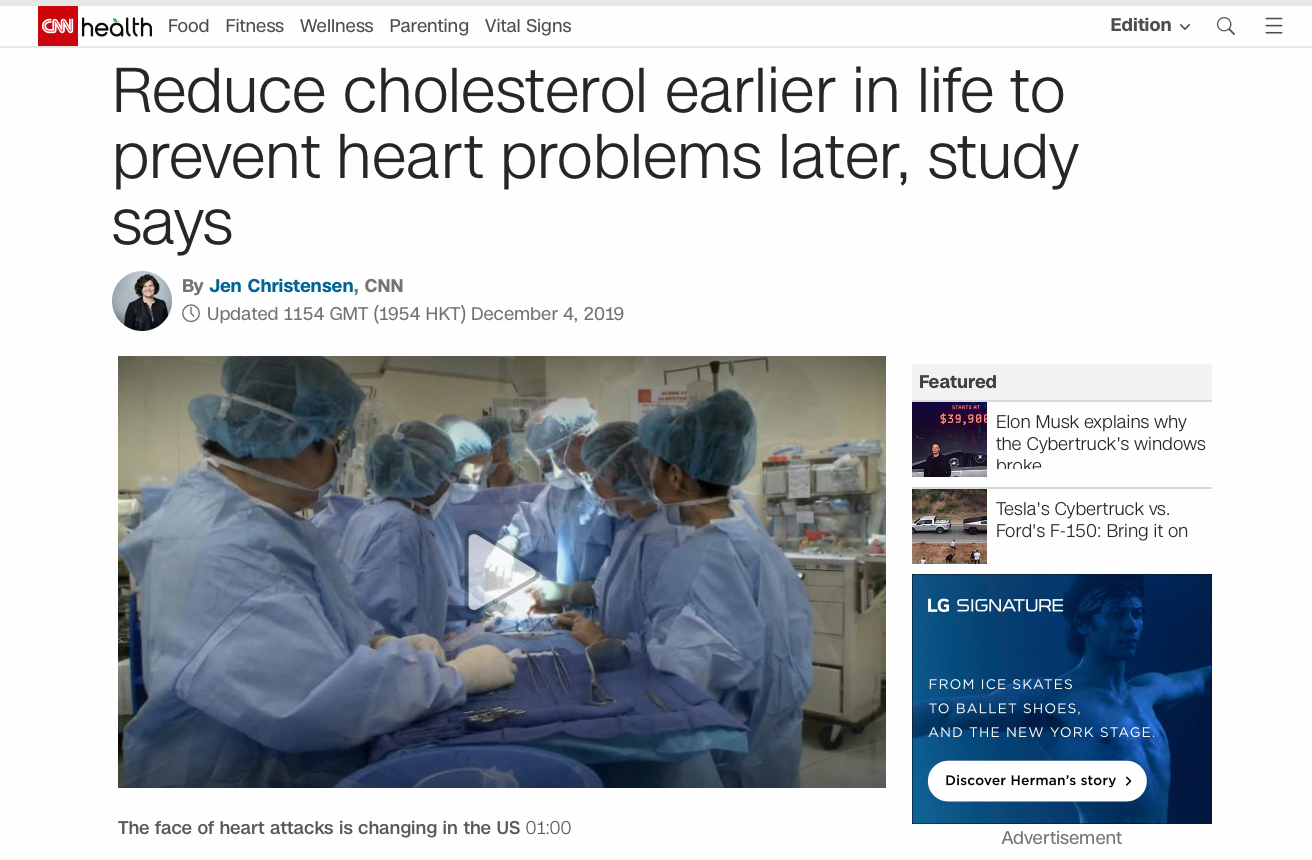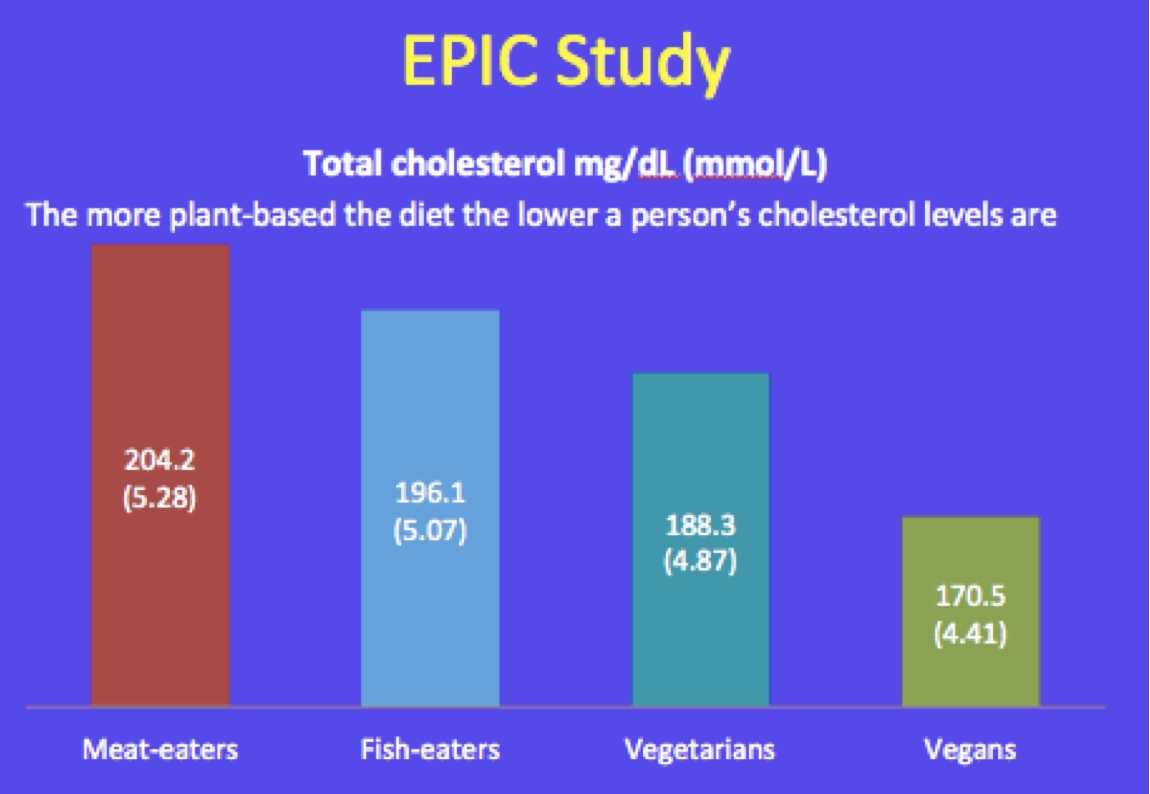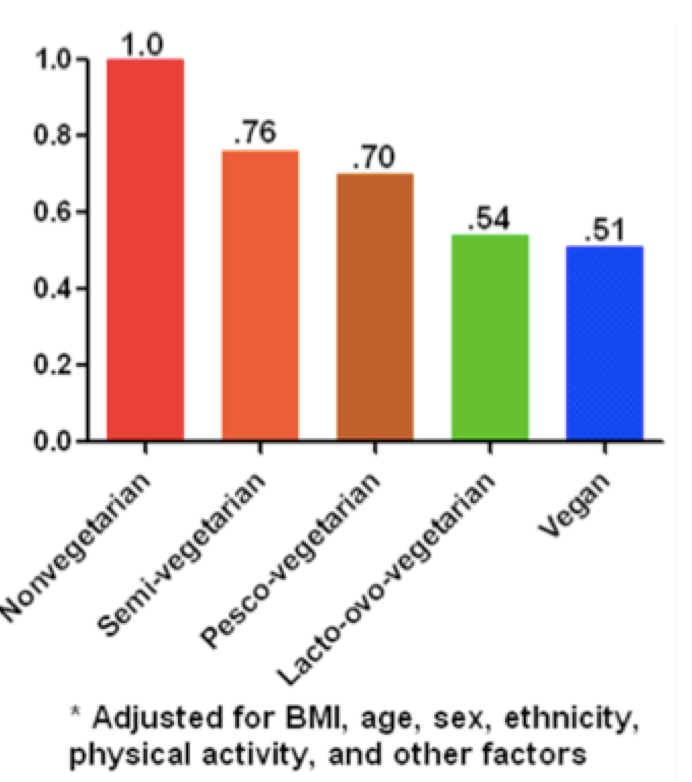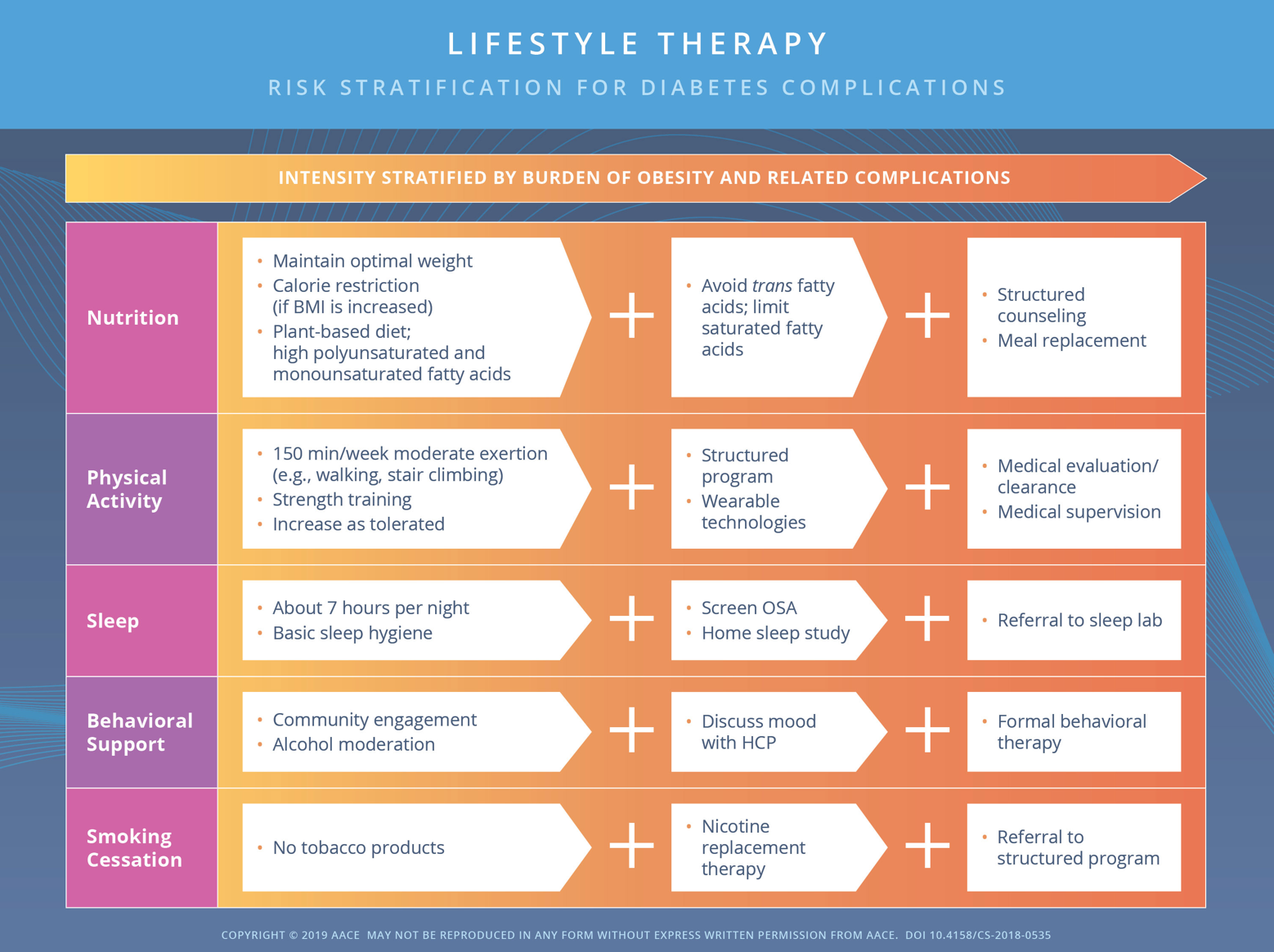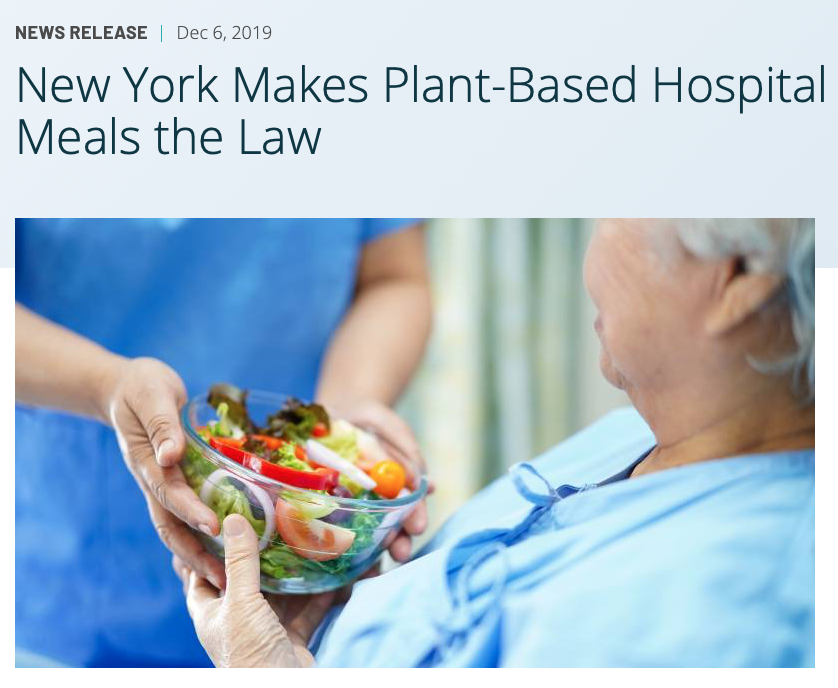A review of the weeks plant-based nutrition news 8th December 2019
CHOLESTEROL AND THE RISK OF CARDIOVASCULAR DISEASE: This very large study examines the long term effects of high blood non-HDL cholesterol and the future risk of cardiovascular disease (CVD). Non-HDL cholesterol is calculated by total cholesterol minus HDL cholesterol and represents the combination of lipoproteins that directly cause atherosclerosis (the fatty plaques in the arteries). The study analysed data on nearly 400,000 men and women with a median age of 51 years who were followed for a median of 13.5 years (maximum follow-up 43.6 years), in order to assess the very long term effect of high non-HDL cholesterol level. The study found progressively higher 30-year rates of CVD with increasing non-HDL cholesterol categories. In women, the risk of CVD was 7·7% if non-HDL cholesterol was <2·6 mmol/L but this rose to 33·7% if the non-HDL cholesterol level was ≥5·7 mmol/L. For men the risk of CVD was 12.8% if non-HDL cholesterol was <2·6 mmol/L but this rose to 43.6% if the non-HDL cholesterol level was ≥5·7 mmol/L. A 50% reduction of non-HDL cholesterol concentrations was associated with a significantly reduced risk of a cardiovascular disease event by the age of 75 years, and this risk reduction was greater the earlier cholesterol concentrations were reduced.

Risk of cardiovascular disease (y-axis) with increasing levels of non-HDL cholesterol (x-axis)
This study once again highlights the importance of keeping blood cholesterol levels as low as possible and from a young age. We know that eating a plant-based diet results in the lowest blood cholesterol levels of any diet pattern. So much so that plant-based diets are now one of the lifestyle recommendations in the 2019 American Heart Association guidelines on primary prevention of CVD.
MATERNAL DIABETES IN PREGNANCY AND THE RISK OF CARDIOVASCULAR DISEASE IN OFFSPRING: This is a rather troubling, yet important paper. Maternal health has the ability to affect the risk of future chronic disease in the child. This population-based cohort study included over 2.4 million live births born in Denmark during 1977–2016. It examined the associations between maternal diabetes (diagnosed before or during pregancy) and early-onset of CVD in offspring. Women with type 1, type 2 and gestational diabetes were included. The study showed that children of mothers with diabetes, especially mothers with a history of CVD or diabetic complications, had increased rates of early-onset CVD throughout the early decades of life. Offspring of mothers with diabetes had a 29% increased rate of early onset CVD.

It is thought that exposure to high glucose and insulin within the womb can alter gene expression and affect the function of the blood vessels.
Type 2 and gestational diabetes is virtually always preventable through lifestyle modification and with diet choices is the most important factor. Diets high in processed and animal-derived foods are the main culprit. Similar to cholesterol levels, we know that those following a plant-based diet have the lowest rates of type 2 diabetes.
The American Association of Clinical Endocrinologists also recommend a plant-based diet as the primary lifestyle intervention for the treatment of type 2 diabetes. We have known for a while that the diet and lifestyle choices of the mother influence the risk of future chronic illness in offspring, with one of the major mechanisms being through the effect on gene expression.

DOCTORS SPEAK OUT FOR PLANETARY HEALTH: More and more doctors are urging us to ditch meat and dairy for the health of the planet. This editorial on the CNN website by a Physician in the US gives an excellent summary of the reasons why. Animal agriculture is the single biggest contributor to global warming and climate change. In fact, earlier this year, the World Organisation of Family Doctors (WONCA) published a declaration on planetary health urging all family physicians to act upon planetary health. One of the recommendations is to help patients transition to a more sustainable and predominately plant-based diet.
PLANT-BASED MEALS IN NEW YORK HOSPITAL IS NOW REQUIRED BY LAW. The New York Governor, Andrew Cuomo, signed into law on December 6th 2020 a landmark bill that guarantees hospital patients a healthful plant-based option at every meal. This adds to the amazing work already being done in New York City to use lifestyle interventions, including a plant-based diet, to prevent and treat chronic disease. In 2018, Brooklyn Borough President Eric L. Adams in partnership with Dr Dr. Michelle McMacken launched a Plant-Based Lifestyle Medicine Program at NYC Health + Hospitals/Bellevue. It is designed to serve as an intensive resource for adult patients with chronic disease who wish to reduce their cardiometabolic risk through healthful lifestyle changes, including following a diet that emphasizes legumes, whole grains, fruits, vegetables, nuts, and seeds, and reduces animal products, fried foods, refined grains, and added sugars. We eagerly await the results of this pilot. Of particular interest is that Borough President Eric L. Adams was able to reverse his own type 2 diabetes by shifting to a whole food plant-based diet and he subsequently helped his mother do the same.You can hear his inspirational story here. The vegan society in the UK is currently campaigning for vegan options on all public sector menus.

If you have found this article useful, please follow my organisation ‘plant-based health professionals UK’ on Instagram @plantbasedhealthprofessionals and facebook. You can support our work by joining as a member or making a donation via the website.

